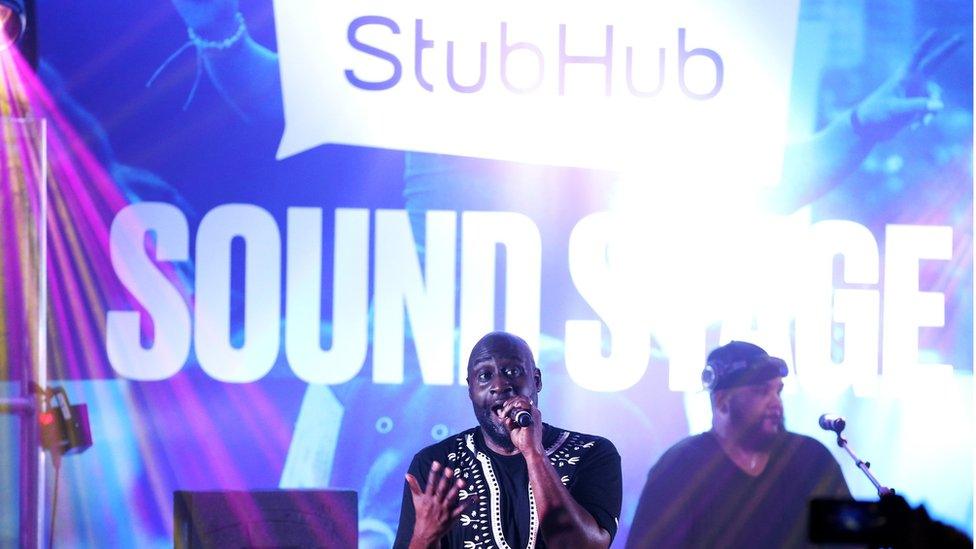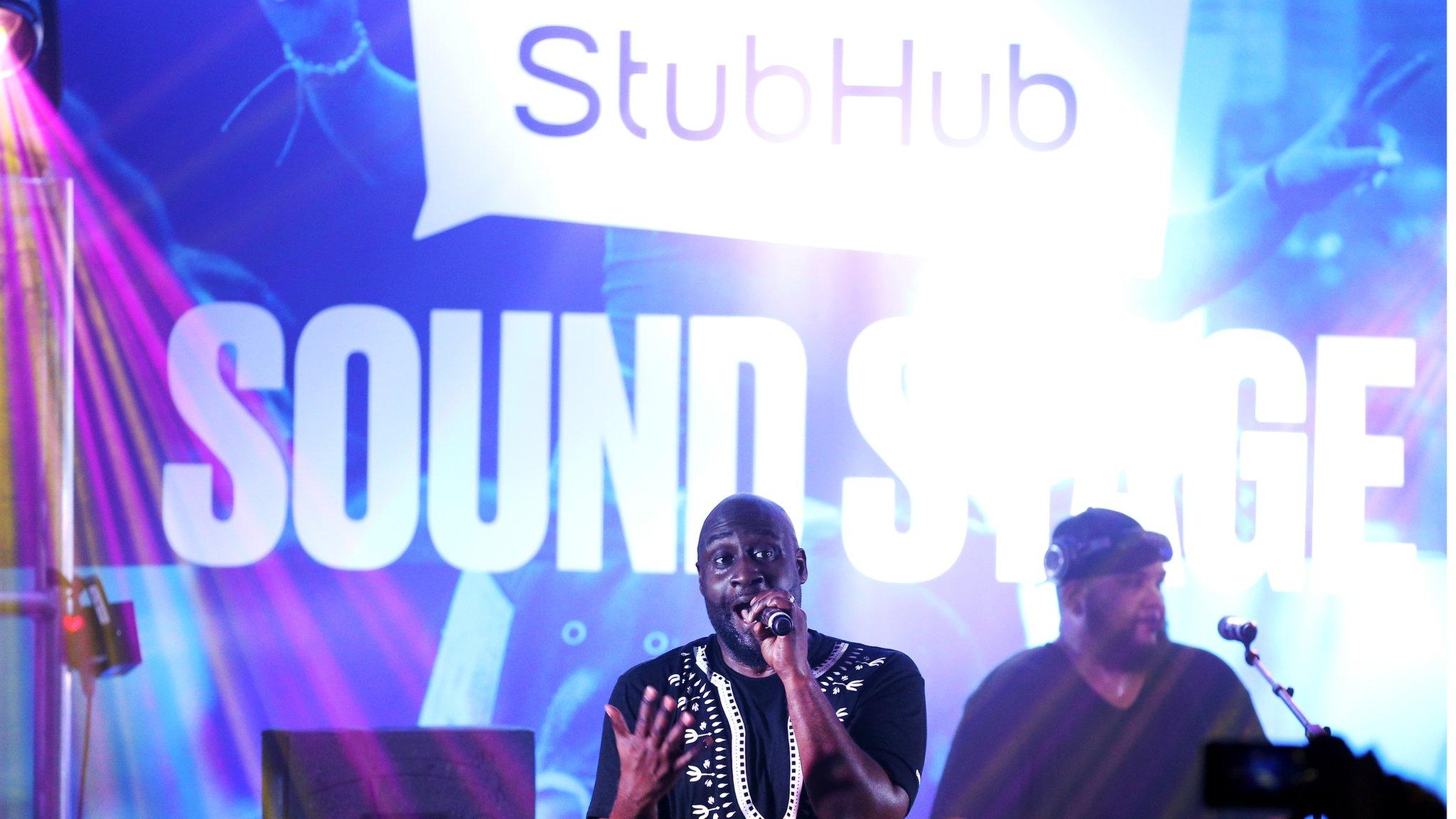Viagogo must sell StubHub's non-US business
- Published

Ticketing site Viagogo will have to sell all of StubHub's business outside North America to satisfy competition concerns.
Viagogo bought rival StubHub in February 2020 for $4.1bn (£3.1bn).
However, an investigation by the UK's competition watchdog found the merger could harm customers' interests.
The Competition and Markets Authority (CMA) said the deal meant a "substantial reduction in competition" in the UK secondary ticketing market.
"This could lead to customers who use secondary ticketing platforms facing higher fees or poorer service in future," the CMA said.
The CMA decision will mean that StubHub's international business - which includes the UK - will be independently owned and run by a separate company, with no input from Viagogo, the authority added.
StubHub's ticketing business operates in a number of territories including North America, the UK and several countries in Europe, South America and Asia.
In the UK, Viagogo and StubHub are the two main providers of secondary ticketing platforms. Together, they have a combined market share of more than 90%.
The CMA will decide key conditions of the sale, such as the right of the purchaser to use the StubHub brand for the next 10 years.
The watchdog will also need to approve the purchaser of the business before any sale.
Deep pockets
The CMA's decision was welcomed by FanFair Alliance, a UK campaign group with widespread music industry support that opposes online ticket touting.
"Tackling this hugely controversial $4bn merger was always going to be tough for regulators," said spokesperson Adam Webb.
"Going forward, the most pertinent question will be the identity of potential buyers.
"Practically all of StubHub's value is in the company's North American operation. Aside from the acquisition costs, anyone wishing to operate a successful uncapped ticket resale business in the UK would require two things: significant relationships with large-scale ticket touts to supply inventory, and deep enough pockets to outspend Viagogo on Google search advertising.
"That might be good for Google and it might be good for ticket touts. But we need a conclusion that's good for UK consumers and stops them being ripped off."
Virus refunds
The decision, which follows an earlier provisional ruling in October last year that the merger would reduce competition, is not the first time Viagogo has come under the eye of the competition watchdog.
In 2019, Viagogo dodged CMA legal action after improving what it tells customers about tickets, including seating information and whether the venue had banned ticket resales.
The CMA welcomed the changes but criticised the site's slowness to respond.
Last year, Viagogo was criticised for refusing to give refunds to people who had bought tickets on its site to events hit by the coronavirus pandemic.
Consumer organisation Which? said the ticketing site had added a clause to its cancellation policy which had left some customers unable to claim their money back. But Viagogo said the claim was "fundamentally inaccurate", since its policy on refunding customers had not changed.
The firm said in a statement: "We are pleased to have found a remedy that is acceptable to the CMA that will allow everyone involved to move forward with clarity and certainty.
"Importantly, both Viagogo and StubHub will continue to provide a safe and secure platform for people to buy and sell tickets to events all over the world."
Related topics
- Published22 October 2020

- Published23 July 2020

- Published25 November 2019

- Published13 December 2019
